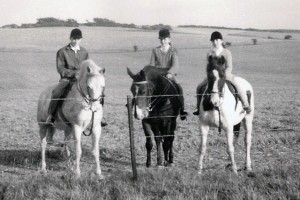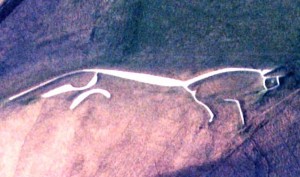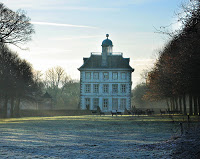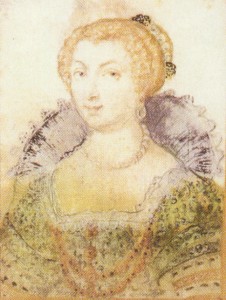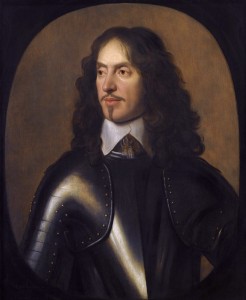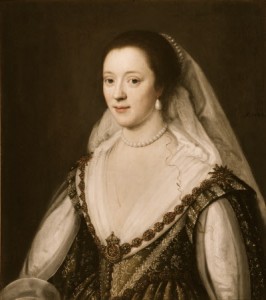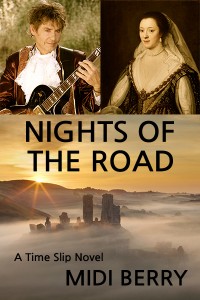This is my first blog of what I hope may be many to come in 2015 and beyond. Historical fiction and fact will feature, as will time slip novels and an exploration of past lives and reincarnation. For the rest, we will discover together what wants to be spoken of here. Thanks for joining me at the start of this journey with its unknown path and destination!
We begin in Southern England where I grew up.
Freedom to Breathe!
Weekends and summer holidays on the Berkshire Downs acted as an escape valve for a solitary ten-year old. The open and bare, flint-strewn tracts of upland chalk gave me space to breathe and ride free. Up where curlews called and the air was clear, I could join other children being children together and shed for a while my restrictive role as ‘the schoolmaster’s daughter’ down in the lowland, Oxford-clay village, where social hierarchy remained stubbornly stuck in the mud of feudalism.
I stayed with an easy-going, show-jumping family. Rules were few – to this day I only remember one: “take care of the horses first and last.” Riding the ancient Ridgeway, in winter we kids stayed close to the farm, up above Letcombe Regis. But in summer we roamed near and wide, usually accompanied by two tireless ragamuffin miniature poodles.
We might cover as much as twelve to twenty miles in a day, when we had no shows or pony club events to attend. My favorite ride took us to the Uffington White Horse and the sarsen stones of the Waylands Smithy long barrow.
Past Life or Timeline Travel?
My first past-life or time travel experience happened at the ancient hill-fort of White Horse Hill, on a pony picnic in the summer I was eleven.
Off my horse and slightly apart from the others, looking down over the steep-sided ‘Manger’ above the Dragon’s Mound, I suddenly ‘fell through time’ and found myself in the middle of a pitched ancient battle. It was noisy, smelly and terrifying and I was glad to be pulled back by an older girl on the picnic who noticed me in a trance.
“She’s away with the fairies”, mocked one of the worldly teenagers, as I haltingly explained what I had experienced. At that, I shut up like a clam and decades would pass before I admitted to another living soul that such things happen to me sometimes and they could occur without warning.
Ashdown House
We rode the long circuit back to Whitehouse Farm after that picnic, skirting the edge of the woods of Ashdown Park. From a distance we could see only the roof of the lovely old building that looked like a giant dolls-house. I often wondered about its history when we rode in the area, but never imagined that, a half century later from across the Atlantic, I would learn that it houses a portrait that inspired me to write a novel.
Nicola Cornick’s delightful and informative blog about Ashdown House introduced me by internet to the history of the lovely hunting lodge built in the seventeenth century for King Charles the First’s sister, Elizabeth of Bohemia.
http://ashdownhouse.blogspot.com
The Winter Queen died in 1662 and never lived in the home so lovingly prepared for her by her faithful Cavalier lover.
Nicola Cornick, Ashdown House Volunteer
I’ve struck up a valued email connection recently with Nicola, an internationally published historical novelist ( nicolacornick.co.uk ), who has been volunteering at Ashdown House for twelve years, researching the history of the house and showing visitors round. She says, “It’s the sort of place that enchants you. All my fellow volunteers agree that when you start to explore the house and its history you become totally hooked on it.”
Because the house is tenanted – the current leaseholder is a well-known rock musician – visiting times are restricted and only part of the house is open to the public. But what a fine part that is!
Nicola says “Visitors come to Ashdown for many reasons. For some it is the elegance of the architecture and the splendour of the grand staircase and roof terrace. For others it’s the turbulent and romantic history of the house and its builder, William First Earl of Craven.”
“Some people come to see the fine collection of early 17th century hunting trophies belonging to Elizabeth, The Winter Queen. Many come for the portrait collection because it offers such a fascinating insight into the characters present at Elizabeth’s court in The Hague.”
Frances Coke
It’s the portrait collection, and one portrait in particular of a young woman who visited Elizabeth in the Hague in 1623, that re-awoke my interest in Ashdown House and will one day draw me back to revisit this magical haunt of my youth, when I visit England again, so that I may at last meet her – and Nicola! – ‘in person.’
The Winter Queen frequently entertained visitors from the English Court in the Hague. Young Frances Coke, Viscountess Purbeck, traveled in the company of her mother, the famous and wealthy Lady Elizabeth Hatton and their friends. There is every reason to believe that Lady H. had encouraged her daughter overseas in the hopes of distracting her so that she would fall out of love. Twenty-year-old Frances had recently been seeking joy outside her unhappy marriage to the manic-depressive brother of the infamous Duke of Buckingham. If so, the visit failed dismally in its intent, since Frances bore her lover’s son in the following year and ran away with him soon thereafter.
William Craven, builder of Ashdown House, was five years younger than Frances but may well have known her in England or the Hague. His father, also a William and a self-made man who rose to be Lord Mayor of London, certainly knew her mother. He was one of the two aldermen obliged to ‘host’ Lady Hatton in the latter part of 1617, and ensure she remained confined in his mansion in Leadenhall Street, London, to prevent her obstructing the wedding plans of Sir Edward Coke for his daughter, Frances.
Of her portrait, Nicola says, “The picture of Frances Coke is one that frequently catches the eye of visitors because there is something about it that draws people in. A lot of people ask about the sitter and want to know her story. Even before I had read about Frances I loved the portrait because she looks beautiful, enigmatic and entirely enchanting.”
I hope that many of you and others will soon enjoy reading a fresh rendering of Frances Coke’s story, when Nights of the Road, my time slip novel of 17th century England and 21st Century California, is published later this month.
In the meantime, her portrait rests in the able care of the National Trust and, if any of you visiting or living in the UK choose to visit this beautiful property close by the Uffington White Horse, where I had my first taste of personal time travel, you may be lucky enough to have the chance to meet with Nicola as well as Frances! ( see nationaltrust.org.uk/ashdown-house/ for details of when and how to arrange a visit).
Wishing A Happy New Year to All!

